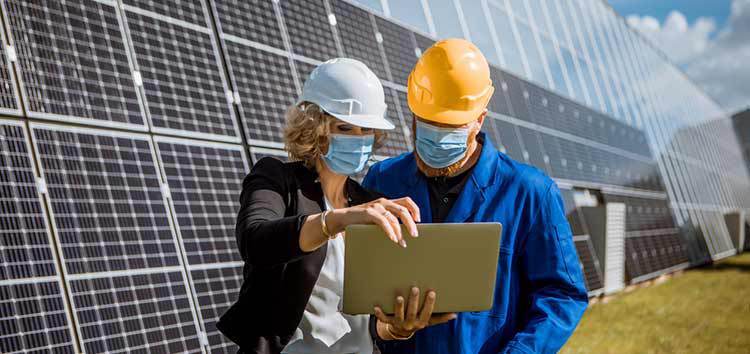Survey: energy chiefs tell EBRD how they see sector recovering post-Covid-19

Energy leaders responding to a survey conducted by the EBRD and summarised in a Covid-19 policy note investigating how the sector will deal with the 5 per cent fall in energy demand worldwide brought by Covid-19 in 2020, have indicated they are confident of a quick recovery. One-third of respondents from 32 countries across the EBRD regions say they believe energy demand will recover fully in 2021; a further 45 per cent believe it will have recovered by the end of 2022; and more than 90 per cent believe recovery will be complete by the end of 2023.
The Covid-19 pandemic has seen falls in both energy demand and investment. The International Energy Agency estimates that demand fell 5 per cent worldwide in 2020, with fossil fuels affected most, and investment in new technologies fell further. With the energy sector responsible for more than 70 per cent of greenhouse gas emissions, clean energy needs to be at the heart of the world’s economic response and plans to “build back better” after the pandemic.
The EBRD, already at the forefront of climate finance, is committed to making a majority of its investments green by 2025. In December 2020, it conducted this survey of senior decision-makers in the energy sector to understand better how pandemic response measures correlate to the longer-term green recovery trajectory. More than 100 responses from policymakers in 32 countries on three continents are the basis of the results.
The survey’s findings on the impact of Covid-19 on the energy sector are that emergency spending hit energy investment hardest, delaying investments in generation and network maintenance in ways that, in some countries, could damage the future resilience of the sector. Private-sector actors are widely believed to have been more affected than state-owned enterprises.
Respondents were however largely positive about the sector’s emergency response, especially on energy security, with success acknowledged in putting in place a safety net for domestic customers, especially in European Union countries.
Respondents also stress the need to build back better to reduce the risk of future shocks. To achieve a swift and sustained energy-sector recovery, the top priority they highlight is grid modernisation, followed by investment in renewables. Clean energy and the digital transition also score highly.
Just under half think Covid-19 will provide greater opportunities for the development of renewables, despite it being a top priority for a sustainable recovery. But more than half say their country will focus on a clean energy transition.
While an inclusive transition is seen more as an outcome of a successful and sustained recovery than a driver of it, over 90 per cent of respondents consider Covid-19 to have increased the importance of scaling up digitalisation in their countries.
“The key issue in future will be the ability and desire of debt-burdened states to finance the investments required to deliver a clean energy transition,” the report on the EBRD survey said.

